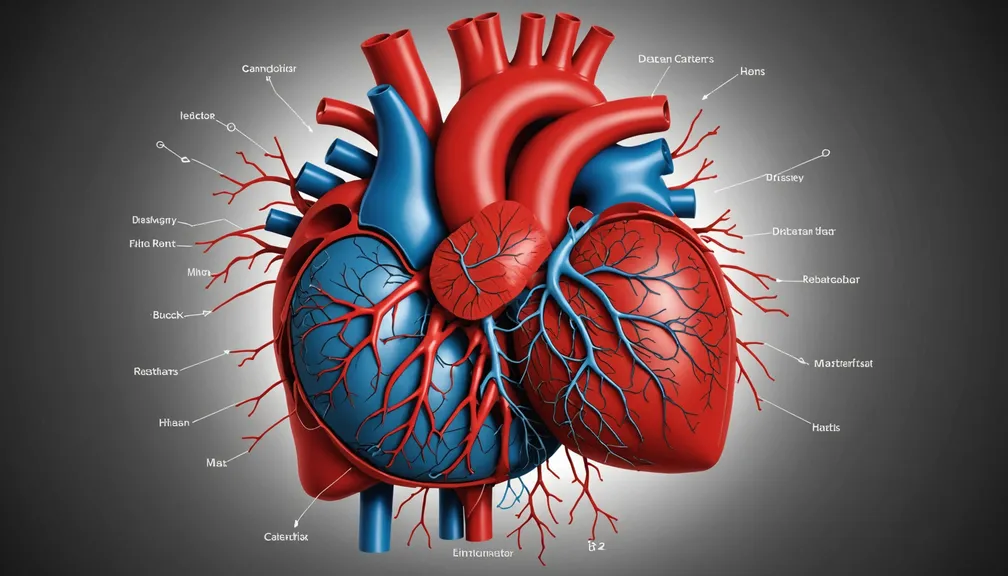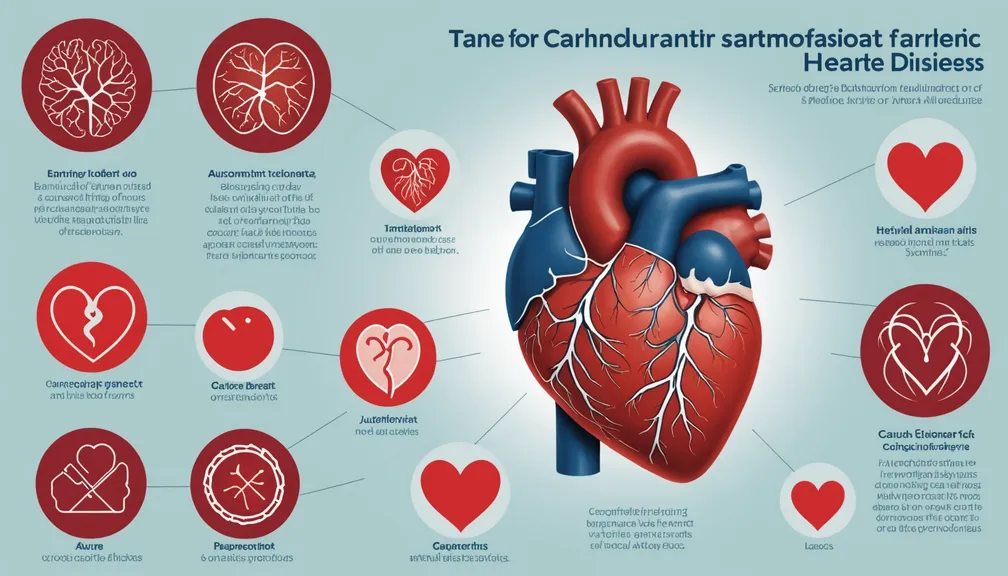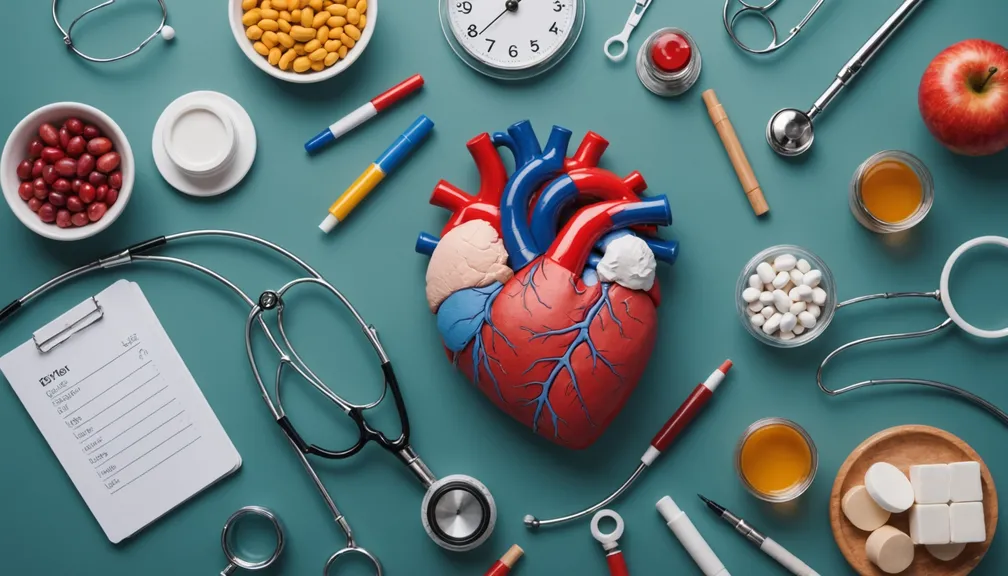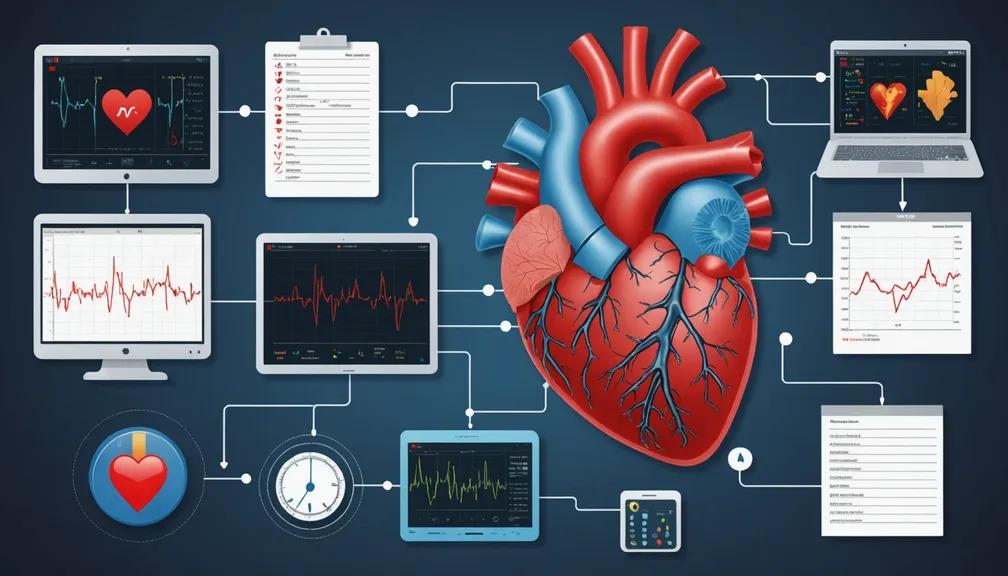The Heart and Circulatory System: How It Works
Understanding your heart and circulatory system is crucial, especially when dealing with rare cardiovascular diseases. This lesson will guide you through the basics of how your heart and blood vessels function, explore various rare cardiovascular conditions, and provide information on managing these diseases effectively.
Understanding Your Heart and Circulatory System
The Heart: Structure and Function
- Structure: The heart is a muscular organ divided into four chambers:
- Left and Right Atriums: Receive blood entering the heart.
- Left and Right Ventricles: Pump blood out of the heart.
- Function: The heart pumps blood throughout your body, delivering oxygen and nutrients to tissues and removing waste products.
Blood Vessels: Arteries, Veins, and Capillaries
- Arteries: Carry oxygen-rich blood away from the heart to the body's tissues.
- Veins: Return oxygen-depleted blood back to the heart.
- Capillaries: Tiny blood vessels where the exchange of oxygen, nutrients, and waste occurs.
How Blood Circulates Through the Body
- Oxygenated Blood: Leaves the left ventricle, travels through arteries to organs and tissues.
- Exchange in Capillaries: Oxygen and nutrients are delivered; waste products are collected.
- Deoxygenated Blood: Returns to the right atrium via veins.
- Pulmonary Circulation: Moves to the lungs for oxygen replenishment before returning to the left atrium.
Rare Cardiovascular Diseases
What Makes a Cardiovascular Disease Rare?
Rare cardiovascular diseases are uncommon conditions affecting the heart and blood vessels. They often have unique causes, such as genetic mutations, and may present with symptoms that differ from more common heart diseases.
Examples of Rare Cardiovascular Diseases
Inherited Cardiomyopathies
- Definition: Genetic disorders that affect the heart muscle, making it harder for the heart to pump blood.
- Types:
- Hypertrophic Cardiomyopathy: Thickened heart muscle.
- Dilated Cardiomyopathy: Enlarged and weakened heart chambers.
- Restrictive Cardiomyopathy: Stiffened heart walls limiting blood filling.
Vascular Anomalies
- Definition: Abnormalities in the blood vessels that can affect their structure or function.
- Types:
- Arteriovenous Malformations (AVMs): Tangled blood vessels connecting arteries and veins.
- Ehlers-Danlos Syndrome: Connective tissue disorder affecting blood vessel integrity.
- Fibromuscular Dysplasia: Abnormal cell growth in the walls of arteries.
Other Rare Conditions
- Pulmonary Hypertension: High blood pressure in the arteries of the lungs.
- Takayasu Arteritis: Inflammation of the large arteries, including the aorta.
- Anderson-Fabry Disease: A genetic disorder affecting the heart and other organs.
Symptoms to Watch For
Common Symptoms of Rare Cardiovascular Diseases
- Shortness of Breath: Difficulty breathing during activities or at rest.
- Chest Pain or Discomfort: May feel like pressure, squeezing, or fullness.
- Palpitations: Irregular or rapid heartbeats.
- Fatigue: Unusual tiredness not related to physical activity.
- Swelling: In the legs, ankles, or feet due to fluid buildup.
- Dizziness or Fainting: Lightheadedness or loss of consciousness.
When to Seek Medical Help
If you experience any of the above symptoms, especially if they are new or worsening, it's important to consult a healthcare professional promptly.
Diagnosing Rare Cardiovascular Conditions
Diagnostic Tests and Procedures
- Electrocardiogram (ECG): Measures the heart's electrical activity.
- Echocardiogram: Uses ultrasound to visualize heart structure and function.
- Magnetic Resonance Imaging (MRI): Provides detailed images of the heart and blood vessels.
- Genetic Testing: Identifies inherited mutations related to specific cardiovascular diseases.
- Blood Tests: Assess overall heart health and detect markers of disease.
Importance of Early Detection
Early diagnosis allows for timely intervention, which can prevent disease progression and improve quality of life.
Treatment Options and Management
Medical Treatments
- Medications: Such as beta-blockers, ACE inhibitors, or anticoagulants to manage symptoms and prevent complications.
- Surgical Procedures: Including heart valve repair, coronary artery bypass, or vascular surgery for certain anomalies.
- Implantable Devices: Pacemakers or defibrillators to regulate heart rhythms.
Lifestyle Changes
- Healthy Diet: Low in salt, fat, and cholesterol to support heart health.
- Regular Exercise: Tailored to individual capabilities to strengthen the heart.
- Avoiding Smoking and Excessive Alcohol: Reduces strain on the cardiovascular system.
- Managing Stress: Techniques like meditation or yoga can benefit overall well-being.
Ongoing Care and Monitoring
Regular check-ups with your healthcare team ensure that your condition is managed effectively and any changes are promptly addressed.
Living with a Rare Cardiovascular Disease
Support Systems
- Family and Friends: Provide emotional support and help with daily activities.
- Support Groups: Connect you with others facing similar challenges.
- Counseling Services: Offer strategies to cope with the emotional aspects of living with a chronic condition.
Lifestyle Adjustments
- Balanced Routine: Incorporate rest and physical activity as recommended by your healthcare provider.
- Medication Management: Keep track of medications and adhere to prescribed schedules.
- Awareness of Triggers: Identify and avoid factors that may exacerbate your condition.
Emotional Well-being
Maintaining mental health is essential. Engage in activities you enjoy, seek professional help if needed, and stay connected with your support network.
Types of Doctors and Health Professionals Who Can Help
Cardiologists
Specialists in diagnosing and treating heart and blood vessel diseases.
Geneticists
Experts in hereditary conditions who can assist with genetic testing and counseling.
Vascular Surgeons
Surgeons who perform operations on blood vessels to correct anomalies or blockages.
Nurse Specialists
Provide education, support, and care management tailored to your condition.
Physical Therapists
Help design exercise programs that improve heart health without overexertion.
Mental Health Professionals
Offer counseling and strategies to manage the emotional impact of living with a rare cardiovascular disease.
By understanding how your heart and circulatory system function and being aware of the signs and symptoms of rare cardiovascular diseases, you can take proactive steps in managing your health. Collaborate closely with your healthcare team to ensure the best possible outcomes.






